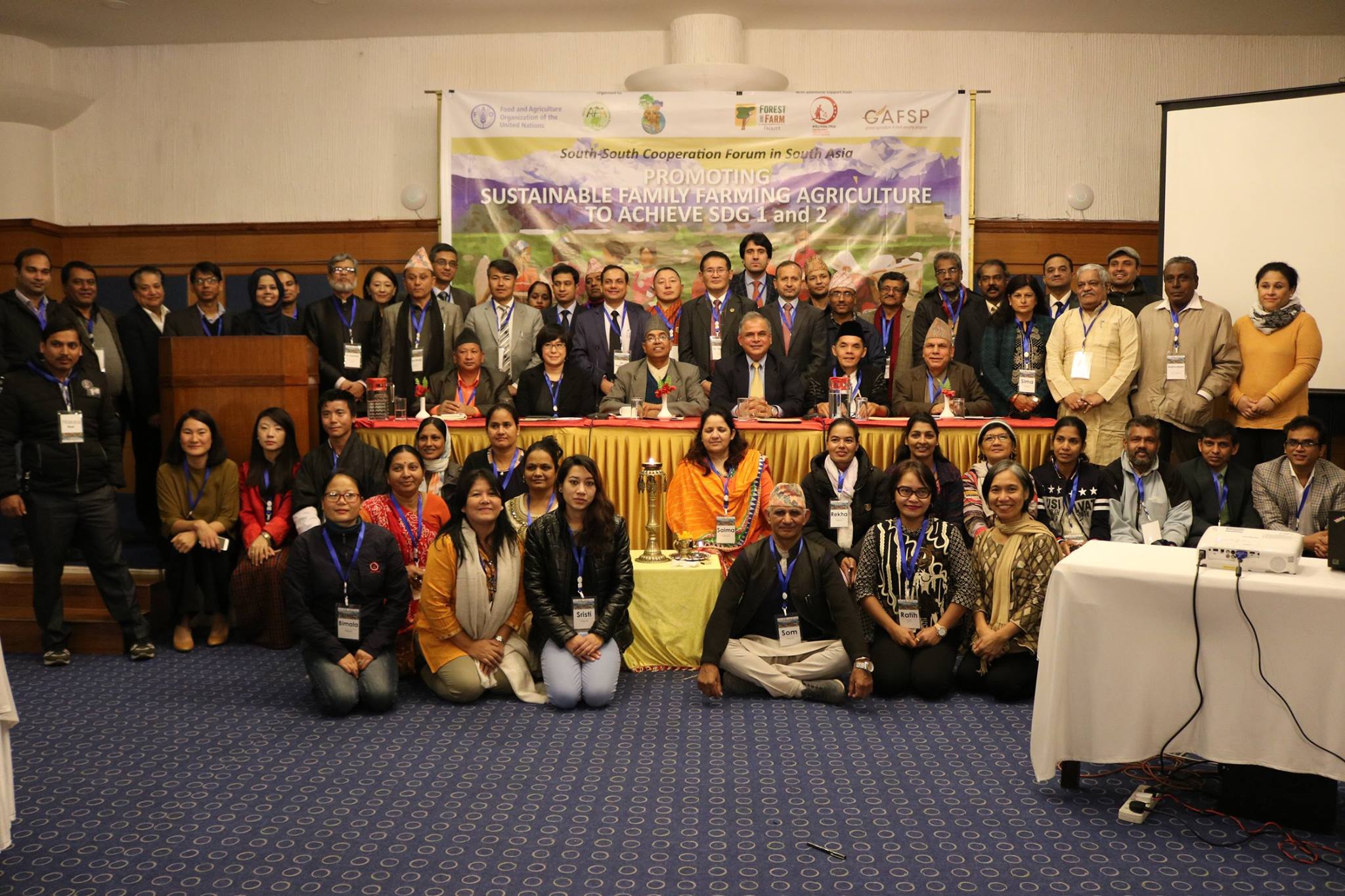
The South-South Cooperation Forum held at Park Village Hotel, Kathmandu, Nepal on 14-16 December 2017 was a success with over 70 participants consisting of farmer leaders, representatives of farmers’ and fishers’ organizations, government officials, scholars from South Asian countries as well as international development partners in attendance.
South Asian Association for Regional Cooperation (SAARC) Secretary General Amjad Hussain B. Sial graced the event and officially opened the forum by leading the panash, a ceremonial lighting of a traditional Nepali lamp. In his speech, SecGen Sial thanked the organizers for bringing in representatives from government, non-government entities, and international organizations for such an important forum. He stressed that the presence of all the participants is a testimony to their commitment to promote sustainable agriculture. He noted that the forum is significant for SAARC because sustainable farming is among its priorities.
“I am confident that this forum will provide a welcome opportunity to the participants to share the best practices and experiences and make recommendations for the promotion of sustainable agriculture, with the emphasis on involvement of women and youth, for achieving SDG 1 and 2”, he said.
South Asia and the SDGs
Additionally, SecGen Sial said that SAARC has initiated an inter-governmental process to contextualize the Sustainable Development Goals (SDGs) at the regional level. The member states of SAARC are also already integrating and aligning SDGs into their national plans for implementation. “Since SDG 1 and SDG 2 are directly related to ending poverty and hunger, SAARC attaches high priority to these goals. I must emphasize that ensuring food and nutrition security is impossible without advancement of sustainable agriculture,” he added.
Dr. Suroj Pokharel of the Ministry of Agriculture of Nepal also joined the opening of the forum and welcomed everyone to Kathmandu. He said that despite the remarkable achievement of the millennium development goals (MDG), millions of people all over the world remain in poverty. He also stressed that it is important to work on SDGs 1 and 2 which lead to zero hunger, SDGs 8 and 13 for climate action, and SDG 17 for partnership.
In her welcome remarks, Kaori Abe, Program Officer for Partnerships and Resource Mobilization of FAO, also called the attention of the participants to the SDG, particularly 1, 2 and 17. According to her, the SSC Forum is the first time for FAO to meet SAARC member countries for a guided discussion and to share experiences in the context of achieving SDG goals. Additionally, Abe explained that food and agriculture are central to the SDG goals and smallholder farmers have critical roles in ending hunger and achieving food security. “Small farmers are strategic partners and not mere beneficiaries to achieve the 2030 agenda. They need better access to more profitable markets if they are to escape poverty and food insecurity”, she suggested.
Additionally, Dr. Pradyumna Raj Pandey, Senior Program Specialist SAARC Agricultural Center, said that all the 17 SDGs are directly and indirectly related to agriculture. Thus, it is not possible to reach SDG goals without sustainable agriculture.
South Asia is the oldest home to agriculture, according to Dr. Keshab Khadka of All Nepal Peasants’ Federation (ANPFa). The region comprises of 4.77 M square kilometers of land—about 55% of which is arable or agricultural land. However, the agricultural trans-national corporations dominate the food industry in the region. Around 60% of South Asians are poor and 400M people are undernourished. To address these issues, Dr. Khadka proposes that the region move towards food sovereignty based on agro-ecology: seed water and farm sovereignty, agrarian revolution worldwide and cooperation between government and farm organizations.
